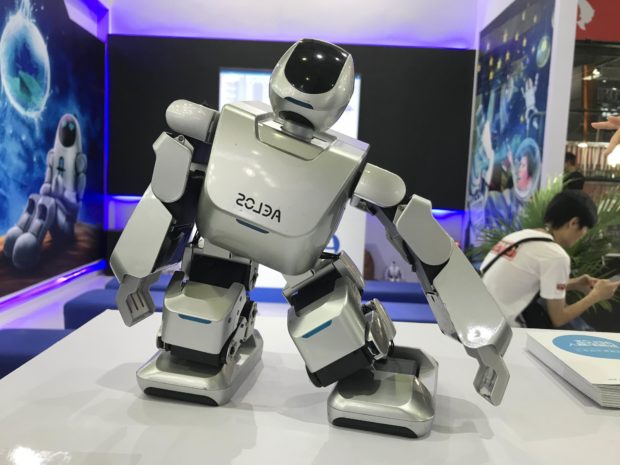
BANGKOK — More than 40,000 technology enthusiasts are expected to pass through the doors of the CES Asia 2018 exhibition by the time the showcase of consumer technology wraps up in Shanghai on Friday.
Exhibitors at the event, which started on Wednesday, are highlighting five technology trends that they say will serve the needs of people in the digital era. Gary Shapiro, president and CEO of Consumer Technology Association (CTA), said that CES Asia is the premier event for the consumer tech industry in Asia and is driving the expansion of technology into new areas.
He said this expansion spans 20 products categories, featuring innovation that will improve people’s lives around the world. The event also comes with 500 local and international companies in the areas of 5G, artificial intelligence (AI), robotics, augmented and virtual reality, audio and video, connectivity, digital health, vehicle tech and cutting-edge startups. He said that GfK, China, reported that the Chinese technology consumer goods market in 2018 is expected to reach US$343.6 billion in 2018 and add growth of 6 per cent in 2019.
Steve Koenig, vice president, research at CTA, said that the five key technologies trends with global impact at CES Asia 2018 are 5G, AI, vehicle tech and smart cities, AR/VR, and robotics. In telecommunications, 5G will create an advantage over 4G such as it will provide data traffic at much faster speeds in 2021. Meanwhile, 4G provides data traffic at 7.2 exabytes per month. The 5G network will also be provide connections with higher speed, greater capacity and lower latency. The event also provides a showcase of wireless VR, smart cities and self-driving cars.
Koenig believes that the 5G will be ready for commercial launch in South Korea, Japan, China and the US in 2020. China’s biggest mobile operator, China Mobile, plans to roll out 10,000 5G base stations by 2020.With AI technology, it will a generate social impact. Experts say it will personalize the purchase journey, including automated factories using robots, bricks and mortar stores that utilize the Internet of things (IoT) for payment, eliminating the need for people to wait in lines.
Optimized inventory management will make use of image recognition and the data collection of Internet and in-store traffic to optimize marketing and customer targeting.Companies can track purchasing habits through machine learning to map the customers’ journeys. The AI technology also comes with smart speaker devices such as Tencent’s TingTing, Alibaba’s Tmall Genie and JD.com’s DingDing gadget. Smart speaker have high growth potential in the Chinese market.
Experts say AI will be in harmony with people’s daily lives via AI TV such as Hisense, a manufacturer of television, air-conditioners, and refrigerators in China.The company has announced AI TV ahead of the World Cup. It has 34.7 million active users in China and expects that it will reach 65 million users by 2020.Koenig said that in robotics, this technology will blend in with daily life such as with service robot and healthcare robots. At CES Asia there are various robots shown, such as a lawn mowing robot, LG CLOi and Sony Aibo.